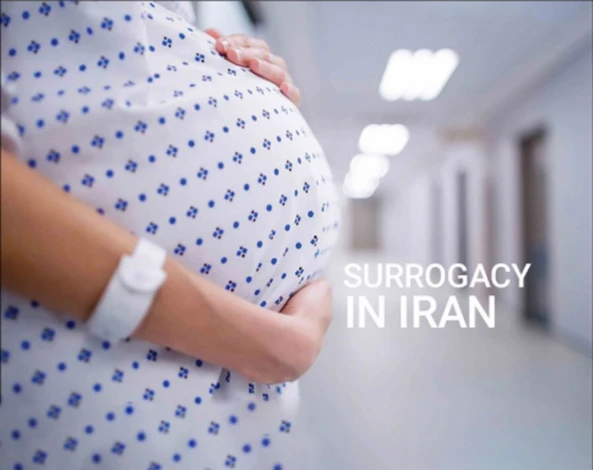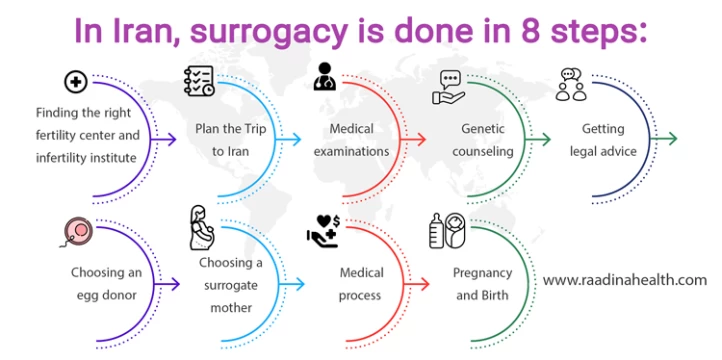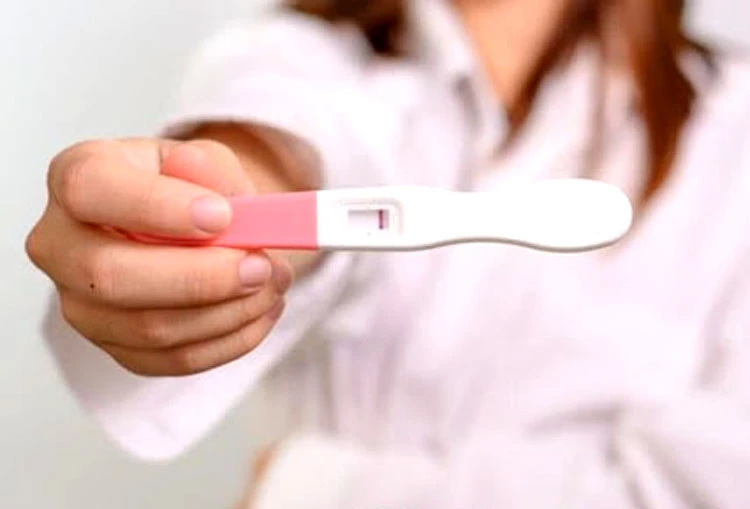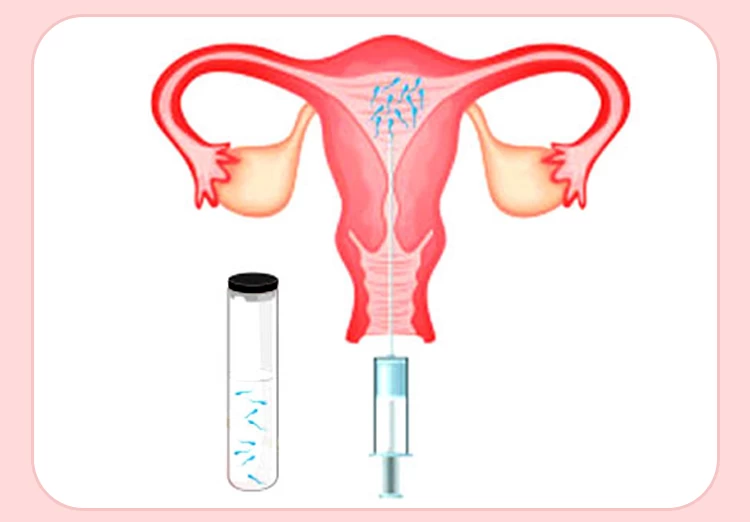Surrogacy in Iran
Fertility Treatment
Gestational Surrogacy is a medical procedure that involves a woman carrying a child for another person or couple. In recent years, surrogacy has become an increasingly popular option for couples who are unable to conceive naturally. Iran is one of the cheapest countries for surrogacy, where the procedure is legal for both Iranian citizens and foreigners. The cost of surrogacy in Iran for foreigners is significantly lower than in other countries. This makes Iran an attractive destination for couples who cannot afford the high costs of surrogacy in their home countries.
Additionally, many foreigners wonder, "Is surrogacy in Iran safe?". It is worth mentioning that the country has a well-established healthcare system and experienced doctors trained in the latest assisted reproductive technology techniques. In this article, we will explore the cost of surrogacy in Iran, its safety, and legal considerations for foreigners.
Aspect | Details |
General Information | Surrogacy in Iran is a legal process guided by Islamic laws, allowing for both altruistic and compensated arrangements. |
Duration in Iran | The entire surrogacy process typically takes about 12 to 18 months, depending on various factors. |
Key Steps in the Process | Consultation: Meet with a fertility specialist. Medical Evaluations: Health checks for both intended parents and surrogates. Legal Agreements: Draft and sign contracts outlining responsibilities and rights. IVF Process: In vitro fertilization is conducted. Pregnancy Monitoring: Regular check-ups during pregnancy. Delivery: Birth of the baby and legal steps for parental rights transfer. |
Legal Considerations | Following local laws and regulations regarding surrogacy contracts and parental rights is essential. |
Costs | Surrogacy costs vary significantly, generally from $30,000 to $70,000, depending on the arrangements and medical procedures involved. |
What is Surrogacy and How Does It Work
Surrogacy is an assisted reproduction method in which the sperm and egg of a couple are fertilized in the laboratory. The resulting embryo is transferred to the uterus of a surrogate mother. This method is used when the biological mother loses the whole uterus or some parts of the genital tract. Also, doctors recommend surrogacy for women with life-threatening diseases that make the pregnancy dangerous.
In most cases, the intended (biological) parents use their sperm and eggs for surrogacy, but sometimes, a donated egg is required. It is noteworthy that gestational surrogacy cannot use a mother's eggs. This means that the gestational carrier has no genetic relationship with her child.

Why Choose Iran for Surrogacy?
Iran has emerged as a leading destination for surrogacy due to its combination of affordability, legal clarity, and high medical standards. Intended parents benefit from a well-regulated framework that ensures the rights and safety of both the surrogate mother and the family. Key factors that make Iran an attractive choice include:
- Cost-effectiveness: Surrogacy in Iran is significantly more affordable than in many countries, without compromising medical quality.
- Experienced medical teams: Fertility clinics employ skilled doctors, embryologists, and support staff for a safe and successful IVF process.
- Legal protection: Comprehensive contracts and government regulations protect all parties throughout the surrogacy journey.
- Ethical and regulated procedures: Clinics follow strict ethical guidelines and medical protocols, ensuring a transparent and reliable process.
Choosing Iran for surrogacy allows intended parents to access a low-cost, legally secure, and professionally managed path to parenthood, making it one of the most trusted options globally.
What Makes Iran a Top Destination for Surrogacy?
Iran has become a top choice for surrogacy due to its unique combination of affordability, high-quality medical care, and welcoming culture. The cost-effective nature of services, including IVF treatments and legal documentation, makes the process accessible for families from around the world. Patients benefit from experienced fertility clinics that provide safe and professional medical supervision, ensuring a high success rate throughout the surrogacy journey.
Beyond medical services, Iran offers a comfortable and supportive environment for intended parents. The hospitality of local people, high-quality hotels, and tourism services make the stay convenient and enjoyable. Clinics also provide comprehensive support before, during, and after the surrogacy process, guiding parents through every step and handling all legal, medical, and administrative requirements. This combination of affordable care, professional support, and cultural warmth positions Iran as a trusted and reliable destination for surrogacy.
Is Surrogacy Legal in Iran?
Iran has a brilliant history in offering several different types of treatments to achieve pregnancy. Also, the number of patients satisfied with fertility services in Iran is continuously growing. In this regard, this country is a hub for fertility treatment in the Middle East.

Surrogacy is one of the most popular assisted reproduction techniques for infertile couples. As you may know, surrogacy is illegal in some countries, so many infertile couples travel to other countries to receive this service. It seems that the cost of performing surrogacy in Iran is lower than in other countries, which is an excellent reason for many foreign couples to choose Iran as their treatment destination. However, it should be noted that surrogacy treatment in Iran is only available for heterosexual couples, so homosexual couples and single parents cannot use this healthcare service in this country. Once you have decided to use this fertility treatment, the Raadina team will assist you in legal procedures in Iran and your home country.
Legal Documents Required for Surrogacy in Iran
Before beginning surrogacy in Iran, both the surrogate mother and the intended parents must complete several essential legal documents. These include identity verification, medical fitness reports, a notarized surrogacy agreement, and official consent forms approved by a legal representative.
Raadina team assist in preparing and translating these documents, ensuring compliance with Iranian family and medical laws. This transparent approach protects everyone involved and simplifies the process for international clients.

How to Start the Surrogacy Process in Iran (Step-by-Step Guide)
Starting the surrogacy process in Iran is straightforward when guided by Raadina team. The first step involves an initial consultation to review your fertility history and determine the best treatment plan. After this, legal contracts are prepared to ensure the protection of both the surrogate and intended parents. The IVF procedure is then performed, followed by embryo transfer under medical supervision. Once pregnancy is confirmed, regular monitoring continues until delivery.
With the help of specialized clinics and experienced agencies, intended parents receive full support—from paperwork and translation to accommodation—ensuring a smooth and transparent journey toward parenthood.
Surrogacy in Iran for Foreigners
In Iran, surrogacy is done in 8 steps:
- Finding the right fertility center and infertility institute
- Plan the Trip to Iran
- Medical examinations
- Genetic counseling
- Getting legal advice
- Choosing an egg donor
- Choosing a surrogate mother
- Medical process
- Pregnancy and Birth

Finding the right fertility center and infertility institute
The first step in surrogacy is choosing a well-equipped fertility clinic or a good infertility institute. It is worth mentioning that the only responsibility of a fertility clinic is to perform in vitro fertilization of sperm and egg. Still, But an infertility institute also provides other important services, such as catching up on surrogacy paperwork.
Plan the Trip to Iran
When planning the trip, patients should consider factors such as travel arrangements, accommodation, visa requirements for surrogacy-related travel to Iran, and post-operative care. They can discuss these aspects with the clinic or medical tourism agency they work with to ensure a smooth and well-organized trip.
Medical examinations
In the next step, the intended parents and the surrogate mother should take medical and physical tests, most of which are performed by specialists at the clinic or institute.

Genetic counseling
Genetic counseling is one of the most important stages of surrogacy because, in the counseling sessions, both parties' inherited diseases and disorders are identified.
Getting legal advice
Getting legal advice and being aware of the regulations and conventions of surrogacy puts an end to most concerns about legal issues of this method.
Choosing an egg donor
If the couple needs a donated egg for surrogacy, they can either receive it from the egg bank of the infertility institute or ask for an egg donor. We should mention that the egg donor must undergo clinical screening before donating the egg.
Choosing a surrogate mother
At this stage, the couple can find the surrogate mother on their own or choose one of the surrogates suggested by the infertility institute. In any case, the gestational surrogate should take medical and psychiatric tests and provide a complete medical history to the doctor.
Medical process
Before starting the surrogacy process, one of the assisted reproduction methods, such as IVF or IUI, should be chosen for fertilizing the egg. When doctors fertilize the egg, it can be transferred to the surrogate's womb.
Pregnancy and Birth
About 15 days after transferring the embryo, the surrogate should take a pregnancy test to confirm the pregnancy. If the surrogate gets pregnant, she will be fully supported by the team of the infertility institution and, of course, the biological parents. Finally, after the birth, the baby is handed over to the intended parent as agreed upon.

Best Surrogacy Clinics in Iran
Iran is home to leading surrogacy clinics such as Bahman, Nikan, and other top-rated fertility centers in Tehran, offering advanced IVF treatments and expert prenatal care. These clinics provide high-quality medical services for both local and international parents.
Through Raadina Health, intended parents can access these top clinics safely, conveniently, and cost-effectively. Raadina coordinates the entire process, from clinic selection to legal and logistical support, making the surrogacy journey in Iran smoother, more reliable, and fully supported.
Required Starter Documents for Foreign Couples
Before beginning the surrogacy process, foreign couples need to submit a series of official documents to verify their identity, marital status, and medical condition. These typically include:
- Valid passports for both partners
- A certified marriage certificate (translated into Persian and legalized)
- Medical reports confirming infertility or the need for surrogacy
- Consent forms signed by both intended parents
- Passport-sized photos and identification for legal filings
Some clinics may also request additional embassy or legal attestations depending on the couple’s nationality. With proper preparation and professional legal support, these documents can be processed quickly, allowing couples to begin their surrogacy journey in Iran smoothly and confidently.
Understanding the Costs of Surrogacy in Iran
The average cost of surrogacy in Iran is around $15,000, which typically covers all stages of the process — from medical evaluations and IVF procedures to childbirth. This amount is managed under the supervision of licensed fertility clinics with the assistance of experienced doctors, psychologists, and legal experts. Factors such as the surrogate mother’s health, the type of fertility treatment (including IVF), genetic testing, and insurance coverage can influence the final price.
Iran is one of the few countries where surrogacy is both legally and religiously approved, making it a safe and affordable option for intended parents. All legal contracts are prepared under the guidance of professional lawyers and authorized fertility centers to ensure the rights of both the surrogate and the intended parents are fully protected. Choosing a reputable clinic with a strong track record in fertility care ensures a secure and successful surrogacy experience in Iran.

If you are considering surrogacy in Iran and have questions, you can contact us for further information. We help you quickly and easily find the right specialist for your needs! We offer the best clinics and doctors in the field of IVF surrogacy. To book an appointment with a doctor, begin here.
Understanding Why Iran Is the Cheapest Country for Surrogacy
Iran is recognized as the cheapest and most affordable country for surrogacy, offering a reliable and well-regulated process for intended parents. The country combines low cost with high-quality medical and legal support, making it an attractive choice for families worldwide. Key reasons include:
- Lower medical service costs: IVF procedures, laboratory tests, and prenatal care are priced significantly lower than in many Western countries.
- Cost-effective surrogate compensation: Wages and allowances for surrogate mothers are aligned with local living standards, reducing overall expenses.
- Affordable legal and administrative fees: Drafting contracts, obtaining permissions, and completing official paperwork are streamlined and less expensive.
- Efficient healthcare infrastructure: Clinics operate with high expertise but lower overhead costs due to the local economic conditions.
- Comprehensive bundled services: Many fertility centers offer all-in-one packages covering medical, legal, and support services, eliminating hidden costs.
These factors ensure a low-cost, safe, and successful surrogacy experience in Iran.

How Long Does the Surrogacy Process Take in Iran?
Surrogacy is a rather long and complex procedure, so it is essential to be patient and realistic when choosing this method of infertility treatment. The surrogacy process may take almost 10 to 12 months, from the day you complete the initial application form to find a surrogate mother to the day you hold your baby.
Application form for surrogacy in Iran
After the Birth: What Happens Next in Iran’s Surrogacy Process?
After the baby is born, the surrogacy process in Iran enters its final legal and emotional stage. The newborn undergoes standard medical check-ups, and the intended parents complete the legal transfer of parental rights. Clinics and legal experts guide families through the documentation process, including birth certificates and embassy paperwork for foreign couples.
This phase also includes postnatal care for the surrogate mother and support for parents as they prepare to return home. Iran’s regulated system ensures that the handover process is safe, respectful, and emotionally positive for all parties

Legal Process and Baby Documentation for International Parents in Iran
Afterward, a birth certificate is issued, listing the intended parents as the legal guardians in accordance with Iranian regulations. This document serves as the foundation for obtaining the baby’s identification and travel records, ensuring that all rights are formally recognized.
To facilitate the baby’s departure from Iran, additional documentation is required, such as a medical discharge report, legal custody documents, and embassy verification for the newborn’s passport or travel permit. Most fertility centers and legal advisors in Iran work closely with foreign embassies to ensure the process is completed smoothly and without delay. With this coordinated support, international parents can confidently finalize all legal and travel steps before returning home with their baby.
Surrogacy Success Rate in Iran
Before the IVF procedure and embryo transfer, multiple medical evaluations are performed on the gestational surrogate to ensure that her body is ready to receive the embryo. So, when the doctors confirm pregnancy, the chance of having a healthy baby is more than 95%. However, some factors affect the success rate of surrogacy, such as:
- The quality of sperm and egg;
- The surrogate's ability to carry a baby for nine months;
- The age of the surrogate and the biological parents;
- The process of fertilizing the egg and
- If a donated egg is used, the age and health condition of the egg donor.

Islamic Perspective on Surrogacy in Iran
As mentioned, there are two types of surrogacies: traditional and gestational. It is interesting to know that the clergies of Islam have different points of view regarding these two types of surrogacies. Some Islamic scholars think that traditional surrogacy is not allowed in Islam. They believe the child born is considered illegitimate due to using the surrogate mother's egg in this method. This group of scholars is concerned that if the surrogate mother marries after surrogacy, her children will be mahram to the child she delivers to the intended family.
On the other hand, most Islamic scholars have verified gestational surrogacy and just a few reject it. They approve of this surrogacy since the egg is obtained from the intended mother herself. So, the child belongs to their intended parents, according to Sharia.

Surrogacy in Shite and Sunni Islam
As you may know, although the practice of surrogacy is not allowed in most Islamic countries, it is permitted in Iran. Most Shiite scholars have issued fatwas that declare surrogacy is allowed in Islam and can be used as a fertility treatment for legal couples. On the other hand, most Sunni scholars agree that surrogacy is not permitted in Islam due to the involvement of a third party in pregnancy. So, if you are Muslim and wish to use surrogacy, we recommend you obtain the necessary information about the fatwā of your marji' taqlid before using surrogacy treatment.
Why Iran Is Becoming a Global Hub for Affordable Surrogacy
Iran is increasingly recognized as a global hub for affordable and ethical surrogacy. With advanced fertility technologies, experienced specialists, and a strong legal structure, the country attracts couples from across Asia, Europe, and the Middle East. The combination of low medical costs, transparent regulations, and cultural respect for family values sets Iran apart as a trusted surrogacy destination.
Furthermore, the growing network of internationally accredited clinics ensures high success rates and professional patient care, reinforcing Iran’s position as one of the most sought-after destinations for surrogacy worldwide.
Get Expert Guidance for Surrogacy in Iran with Raadina team
If you are considering surrogacy in Iran, Raadina is here to guide you every step of the way. Our team of experts specializes in medical tourism and fertility services, providing personalized consultation, legal guidance, and comprehensive support before, during, and after the surrogacy process. With our professional assistance, you can confidently navigate the journey to parenthood in Iran.
Contact Raadina today to schedule your consultation and discover how our services can make your surrogacy experience smooth, safe, and reliable. Trust our expertise to turn your dream of parenthood into reality.
Contact us for a free initial consultation about Surrogacy in Iran
FAQs about Surrogacy in Iran
What is the success rate of surrogacy in Iran?
The success rate of surrogacy depends heavily on the age of the egg provider. In general, the success rate of implantation in surrogacy is between 60% and 70%, and once the surrogate is pregnant, the success rate of a healthy pregnancy is above 90%.
What are the requirements of a surrogate mother in Iran?
An ideal surrogate should be between the ages of 21 and 35, have a good health condition, have a healthy reproductive system, be a non-smoker, not have STDs and genetic disorders, have a normal and stable BMI, have given birth to at least one healthy baby, and be mentally healthy.
Are surrogacy clinics in Iran well-equipped?
Yes. Surrogacy clinics in Iran are equipped with the latest technology, and their medical staff is experienced in providing exceptional care to patients worldwide. They offer various services, including egg donation and embryo transfer, to ensure patients have the best chance of success.
How long does the surrogacy process usually take in Iran?
Intended parents can expect the surrogacy process, including IVF, embryo transfer, pregnancy, and delivery, to take approximately 12 to 18 months, depending on individual circumstances and medical schedules.
Can foreign couples legally use surrogacy services in Iran?
Yes, foreign couples can pursue surrogacy in Iran under certain legal frameworks. Clinics provide guidance to navigate local laws and ensure all contracts and permissions comply with regulations.
What types of support do clinics provide during and after pregnancy?
Fertility clinics in Iran offer continuous support, including medical check-ups, psychological counseling, legal assistance, and post-birth documentation services to ensure a smooth experience for both the surrogate and the intended parents.
Are there accommodations and travel services for intended parents in Iran?
Many clinics collaborate with high-quality hotels and tourism services to provide comfortable accommodations, transportation, and translation support, making the surrogacy journey convenient and stress-free.
How is the health of the surrogate mother monitored throughout pregnancy?
Surrogate mothers undergo regular medical examinations, nutritional counseling, and prenatal monitoring by licensed professionals to ensure both the mother and the baby remain healthy during the entire pregnancy.


 WhatsApp
WhatsApp
 Telegram
Telegram
 Facebook
Facebook
 Email
Email









User
-Salam, man Mohammad hastam va az sued bahatun tamas migiram. Khanomam nemitune bachedar beshe va ma mikhaim bebinim chetore age ma biaim Iran va az Surrogacy estefade konim.
Mamnon misham age yekam toziad bedid baraye kasai ke az kharej mian?
Ba salam,
Mohammad
Mojdeh Jafarizadeh
-Hello. In order to find detailed information about the surrogacy process in Iran, please contact us on WhatsApp at 00989223401365.
User
-Aslam o Alaikum Can I have any fertility treatment center contact info so I can reach out to them?
Habib Ebrahimi
-Hello there,
For more information, please contact us on WhatsApp.
00989052510125
User
-Hi there, I am looking for surrogate mother. Please let me know about the availability.
Habib Ebrahimi
-Hi
Please contact us +989052510125
User
-Thanks for the information
User
-May I have your e-mail address,please?Looking forward your response!
فاطمه وجهی
-Hi
raadinahealth@gmail.com
User
-Hello, is it true that surrogacy is possible here? Is it legal to do this there (Iran)? If so, how can I do it? Please give me information regarding this. Sorry if my writing is difficult to understand, because I am not fluent in English. Thank you.
آزاده کرباسی(کارشناس پشتیبانی)
-Hello dear yes it's possible
please contact this number in WhatsApp
+989052510125
User
-Assalamualaikum. hai, is it true that surrogacy is possible here? Is it legal to do this there (Iran)? If so, how can I do it? Please give me information regarding this. Sorry if my writing is difficult to understand, because I am not fluent in English. Thank you.
آزاده کرباسی(کارشناس پشتیبانی)
-Hello yes it's legal
+989052510125